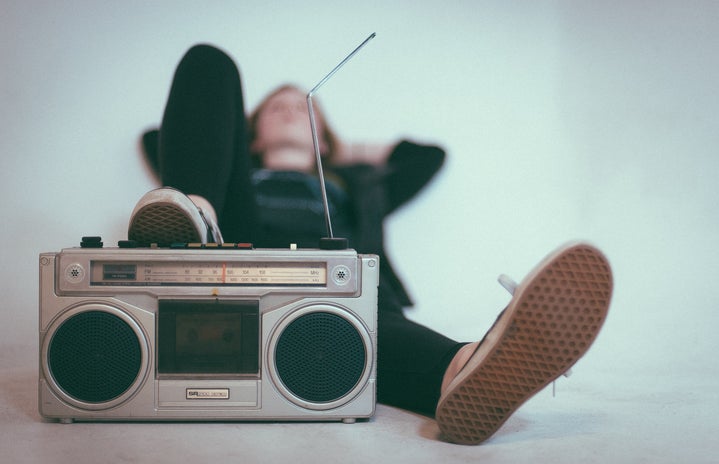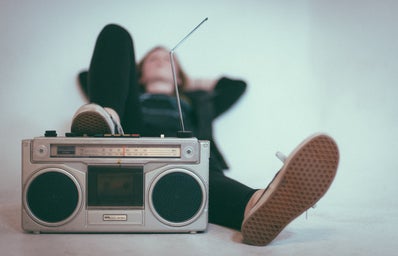I’m proud to say that I’ve been a DJ for UCSC’s on-campus radio station, KZSC, for two years now. Ever since my freshman year, I’ve always wanted to develop a strong relationship with this student-run community. In fact, I chose Merrill College because of its proximity to the station (behind the Merrill A dorms). My relationship with KZSC started with me as a volunteer in which I dedicated at least an hour a week at the station processing CDs and making button pins. When I racked up enough hours to be able to apply to the Radio Production course, I was ecstatic! I graduated from the course after my Winter quarter and I was so excited to finally produce my own radio show.
Then Spring happened and well…we all know what happened in Spring.
I took a break from radio as I adjusted to shelter-in-place and the early pandemic lifestyle of staying home and going nowhere. Then, KZSC notified staff and recent graduates of the course that they’d be offering show slots to those who want to do remote programming. Given that I was living in my hometown away from Santa Cruz, I started my show, “The Shuffle” which plays Sundays from 2-4pm, during Summer 2020 by remote programming. Now that I’m finally back on-campus and I have the ability to do live programming, I’ve been able to compare and contrast my experience from doing both. Here are the pros and cons of both programming:
Remote Programming
Pros:
- I’m able to edit out bad words which allows me to play any song that I want on the radio.
- I’m able to start over and rephrase what I want to say.
Cons:
- Tech problems (i.e. recorded show doesn’t play because of issues with submission).
- Unable to speak over music which ruins the ambiance.
- Had to time music to end at certain times (ex: ending a song right before I have to speak at the half hour mark where I have to read ID/IPs/PSAs).
- Luckily I was able to get free editing software from KZSC using the code they gave us, but if I wasn’t able to get the code, it would’ve been expensive to buy!
Live Programming
Pros:
- I’m able to answer calls and texts from people! I can take music requests and gain more interaction with people.
- I can play music under my voice when I talk which creates a better vibe.
- Less anxiety over picking IPs, PSAs, logging songs into spinitron, etc. as everything is set up already at the station on a big computer screen.
- I’m able to invite guests over and show people what I do.
- It makes me feel more authentic, like a real DJ in the studio. 😎
Cons:
- Since I program using aux, I have to worry about sound levels and thinking of a plan for when the aux doesn’t work (revert to playing CDs and vinyls).
- When I mess up talking, I can’t go back and change what I said or how I said it because it’s live! Same goes with playing music.
- Harder to include songs with bad words because my show is during a slot outside of safe harbor hours.
Overall, I definitely prefer live programming over remote. It’s so much more freeing and it allows me to feel more connected to the sound board, the station, and listeners who tune in to my show! I’m so grateful for the opportunity to be on-campus and do live programming. Now that I know what it’s like, it’s going to be difficult going back to remote programming should I have to.
For those interested in learning more about KZSC and/or more information on how you can become a DJ, email me and let me know! I’ll be more than happy to show you the station and have you sit on my show to see what it looks like behind the scenes. You can also email the volunteer coordinator Erik Lafferty, with their email volunteer@kzsc.org.
Radio Lingo Glossary:
IP = “Internal Programming” refers to the small blurbs DJs read about other shows at our station.
PSA = A “Public Service Announcement” includes important information for the public to know.
Spinitron = The website where all DJs are required to post what songs they play on the radio during their slot.
ID = Every radio show is given an ID, for KZSC our legal ID is “KZSC, Santa Cruz.” If we don’t say it every hour, we get FINED!
Safe Harbor Hours = Bad words can be played from 10pm-6am but if said anytime before or after, DJs are required to read a disclaimer and can be potentially fined.


